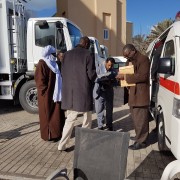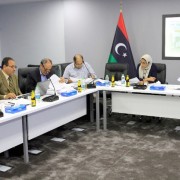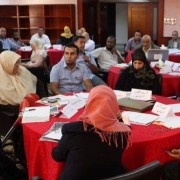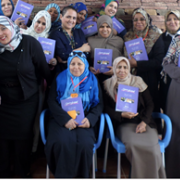Speeches Shim

Stabilization Facility for Libya (SFL) supports the Libyan Government of National Accord (GNA) by providing tangible ‘quick-wins’ at the local level in the East, South and West of Libya. SFL implements improvements, such as rehabilitating critical infrastructure and restoring basic public services, in close collaboration with local governing institutions.

USAID Libya, in keeping with its efforts to build long-term capacity of Libyan governance and financial systems, recently partnered with World Bank to conduct a two-week intensive training on Public Financial Management (PFM) best practices for 35 technocrats from Libya’s Ministries of Finance, Planning, and Local Governance, and 11 municipalities. The training, which included two women, used international best practices and PFM practices recommended by the World Bank.

A first for Libyan women -- Alaa Alshibani -- is the head of the legal department of the country's High National Elections Commission (HNEC). Alshibani, who has been a part of the HNEC since its creation in 2012, is spearheading the commission's progress on electoral law reform.

The LEGS program is providing technical assistance to Libyan government institutions and civil society organizations as they attempt to navigate the country’s transition from an authoritarian regime to a democratic system.

To establish effective practices for sub national governance. IRI is helping ensure that local government is informed by, and inclusive of, citizen concerns. In addition, IRI supports Libyan municipal council members in fulfilling their roles and responsibilities while engaging in sound policy making. IRI is supporting the Ministry of Local Government to establish effective structures for intra-governmental communication, administrative functions, training, and service delivery. Finally, in an effort to increase the role of marginalized groups in Libya’s governance, IRI engages youth leaders to advocate for issues in their communities.


Comment
Make a general inquiry or suggest an improvement.